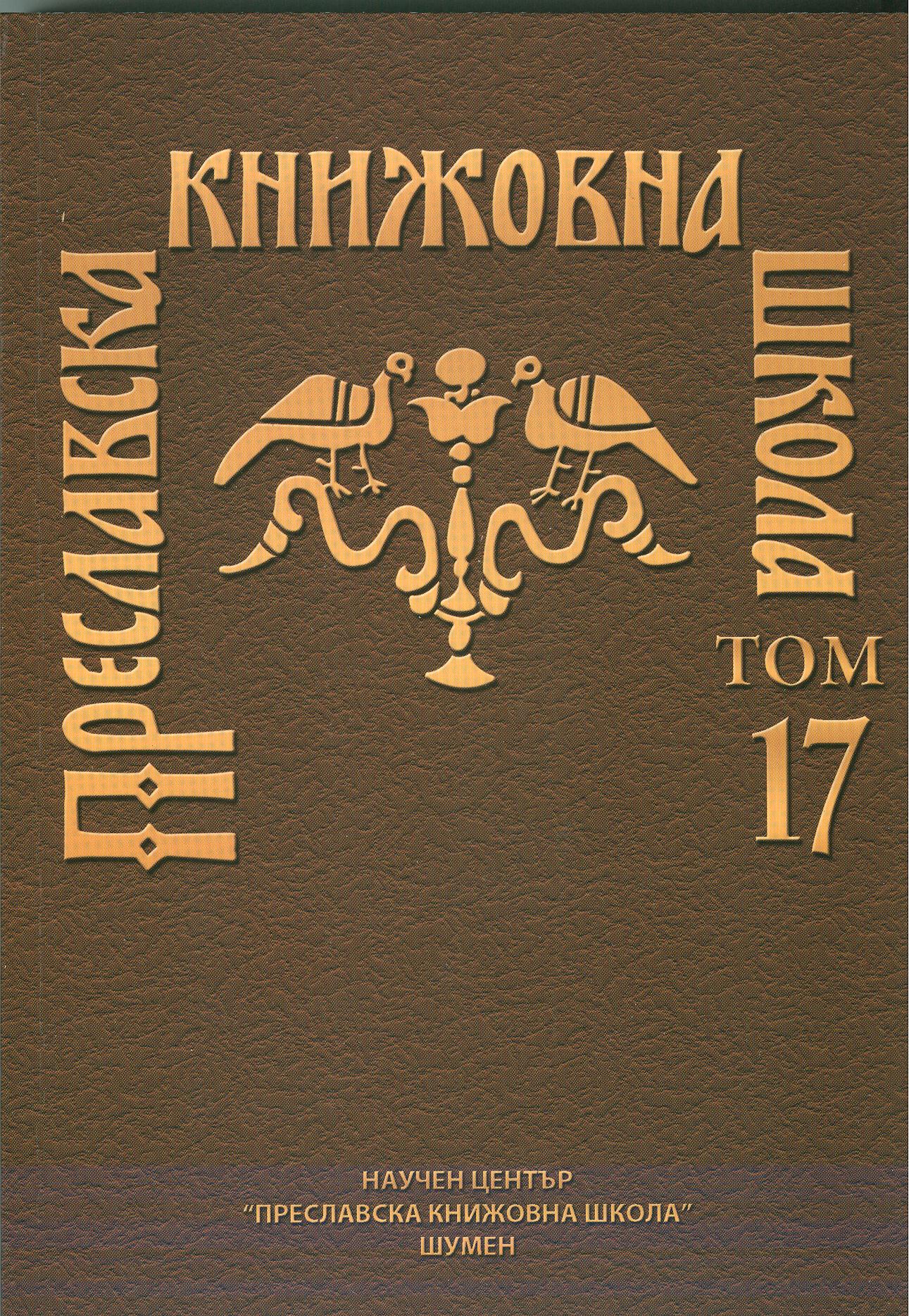ЗА УПОТРЕБАТА НА БЪДЕЩЕ ВРЕМЕ В СЛАВЯНСКИЯ ПРЕВОД НА „ИСТОРИЯ НА ЮДЕЙСКАТА ВОЙНА” ОТ ЙОСИФ ФЛАВИЙ СПОРЕД АРХИВСКИЯ ХРОНОГРАФ
ON THE USE OF THE FUTURE TENSE IN THE SLAVONIC TRANSLATION OF THE HISTORY OF THE JUDAIC WAR BY JOSEPH FLAVIUS ACCORDING TO THE ARCHIVE CHRONOGRAPH
Author(s): Aneta TihovaSubject(s): Theoretical Linguistics, Philology
Published by: Шуменски университет »Епископ Константин Преславски«
Keywords: THE HISTORY OF THE JUDAIC WAR BY JOSEPH FLAVIUS; OLD SLAVONIC TRANSLATION
Summary/Abstract: The article deals with the use of the Future tense in the Slavonic translation of the History of the Judaic War by Joseph Flavius according to the Archive Chronograph from a formal and semantic viewpoint. It turns out that: a) the examples of Future Simple Tense are considerably more in number than those of Future Descriptive Tense; b) Future Tense is expressed mainly through preterite verbs; c) the forms of the Active Voice prevail; d) in the Future Tense formed with b9d9, the nominal component of the noun is usually in the nominative case more rarely in the genitive or instrumental case; e) when signifying two doers of an action in the future dual forms are used; f) on a semantic level these forms express both acts, predicted as absolutely possible (Prophetic Future) as well as different shades of supposition, probability, certainty, confidence, intention or summing. The observations made enable us to determine that the use of the Futurum in the History of the Judaic War is characterized by peculiarities typical for the Old-Bulgarian language. This fact supports the supposition that the Slavonic translation of the text was made during King Simeon’s Golden Age.
Journal: Преславска книжовна школа
- Issue Year: 2017
- Issue No: 17
- Page Range: 158-173
- Page Count: 15
- Language: Bulgarian

